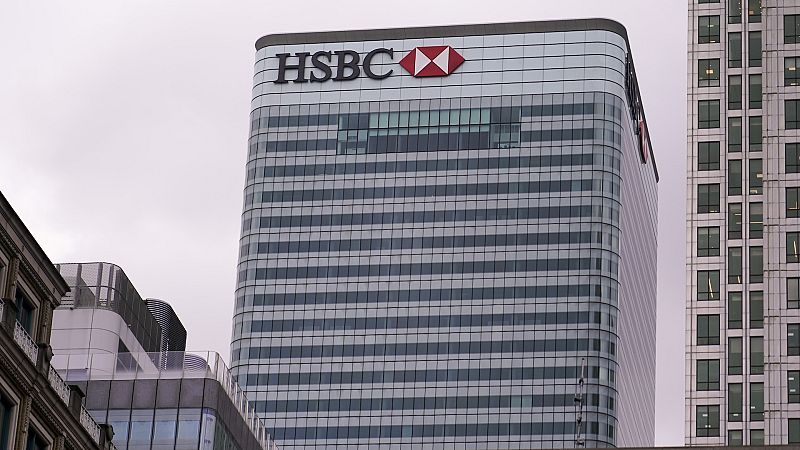HSBC announces €1.9bn share buyback as annual profit jumps

Europe’s largest bank, HSBC, reported a pre-tax profit of $32.31 billion (€30.91 billion) for the full year 2024, up 6.5% from a year earlier, despite slightly missing analysts’ estimates.
Its strong performance in wealth and personal banking (WPB) and global banking and markets (GBM) offset a decline in its primary revenue contributor, net interest income (NII). The bank also announced a $2bn (€1.9bn) share repurchase plan, expected to be completed by the end of the first quarter of 2025.
The London-based lender’s share price jumped 1% before retreating following the results on the Hong Kong Stock Exchange. Before its earnings report, HSBC’s stock reached a two-decade high in London on Tuesday and rose 16% this year after a 23% gain in 2024.
The fourth-quarter earnings are the first set of results after Georges Elhedery took the helm at the bank in September last year. He commented: “Our strong 2024 performance provides firm financial foundations upon which to build for the future, as we prioritise delivering sustainable strategic growth and the best outcomes for our customers.”
A decline in NII
Notably, the bank reported net interest income (NII) of $32.73bn (€31.32bn) for 2024, down $3.1bn (€2.97bn) or 8.5% from 2023. The decline was due to “the impact of business disposals and higher funding costs associated with the redeployment of our commercial surplus to the trading book,” stated the bank. The net interest margin declined by 10 basis points to 1.56%.
Meanwhile, WPB and GBM both recorded double-digit annual growth of 37.7% and 21.9%, respectively, reflecting HSBC’s strategic restructuring efforts.
Its overall revenue was recorded at $65.9bn (€63.1bn) in 2024, slightly down from 2023, as growth in WPB and GBM supported the performance. Its operating expenses grew by 3% to $33 billion (€31.6 billion), mainly due to higher spending on technology and high inflation. Its common equity tier 1 (CET1) capital ratio rose by 0.1% to 14.9%.
During the fourth quarter of 2024, the company reported a pre-tax profit of $2.3bn (€2.2bn), nearly doubling from the same quarter last year. However, quarterly revenue declined by 11% due to the recycling of foreign currency losses and other reserves relating to the sale of its business in Argentina.
Commenting on the results, the CEO of the stock trading platform Webull UK, Nick Saunders said: “Underneath the expected cost-cutting and restructuring, HSBC’s performance is ultimately a reflection of its Asia-first strategy. Asian business is not a line marked ‘for future growth’ but the best performing sector of one of the largest global banks.
"The sale of the Canadian banking business is the most obvious example of this. The decline of the bank’s net interest margin is potentially concerning, by the fact that the bank’s strategy appears to be working puts it in contrast to its more Western competitors.”
Outlook focuses on cost discipline
Amid rising costs and reduced profits, HSBC announced a new geographic restructuring last year, merging two of its three major divisions—Commercial Banking and Global Banking and Markets—as part of new CEO Georges Elhedery’s cost-cutting efforts.
The bank said it would retain a group-wide focus on cost discipline and target annual growth of approximately 3% in 2025. “Our cost target includes the impact of simplification-related savings associated with our announced reorganisation,” the bank stated.
It aims to generate approximately $0.3bn of cost reductions in 2025 and an annualised reduction of $1.5bn (€1.44bn) in the cost base by the end of 2026.
HSBC maintained its guidance from the September quarter, continuing to target a mid-teens return on average tangible equity (RoTE) in each of the three years from 2025 to 2027.
The NII is expected to be around $42bn (€40.2bn) in 2025, or a 3.9% drop from 2024. This may be related to expectations of falling interest rates.
Today

